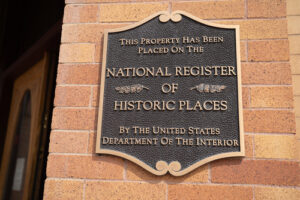
U.S. Rep. Mike Carey (R-OH) and five of his colleagues recently made a bipartisan request that the Internal Revenue Service (IRS) provide additional guidance on historic preservation easements.
“Ohio is home to countless historic buildings and cultural areas that make our communities unique,” Rep. Carey said in a Sept. 6 statement. “The IRS should act quickly to update its guidance on the historic preservation easement program to help those doing the hard work of preserving our nation’s history.”
In the Consolidated Appropriations Act of 2022, Congress directed the IRS to issue safe harbor language for deeds, specifically on boundary disputes and extinguishment clauses, according to an Aug. 9 letter that Rep. Carey and his colleagues sent to IRS Commissioner Danny Werfel.
“While the IRS released this safe harbor on time, we believe the guidance does not adequately differentiate historic preservation easements on buildings from greenspace conservation easement on open land,” wrote Rep. Carey and the lawmakers. “This inadequacy makes the safe harbor difficult to use and ignores the effort and direction that Congress intended by explicitly excluding historic structure easements.”
The lawmakers want the IRS to provide clear guidance, including model deeds and easement agreements, and to resolve any outstanding jurisdictional issues. Their goal is to ensure that all taxpayers and property owners who wish to protect historic buildings can have confidence in utilizing the historic preservation easement program, according to their letter.
Rep. Carey and the members also called on the IRS to ensure that taxpayers and preservationists are not deterred from utilizing historic building preservation tools due to uncertainty or threats of audits or litigation. Among the members who also signed the letter were U.S. Reps. Brian Fitzpatrick (R-PA), Darin LaHood (R-IL), and Earl Blumenauer (D-OR).
“Clear guidance should resolve many of the issues the IRS is concerned about encountering and help to target enforcement activities following implementation of the Consolidated Appropriations Act on truly abusive transactions,” wrote the lawmakers. “More importantly, an effective and clear safe harbor will ensure that these vital programs remain available to the historic preservation community.”



